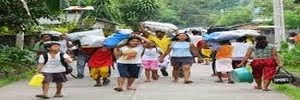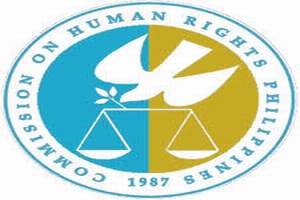From the Website of IBON Foundations
Links: http://ibon.org/ibon_articles.php?id=347
Anti-corruption measures vital for relief efforts--IBON
IBON NEWS | 2013 November 22 | Anti-corruption measures can be put in place: affected communities and relevant NGOs and people's organizations need to be an intrinsic part of assessing the damage, ascertaining needs, implementation, monitoring and evaluat
Think tank IBON warned that if anti-corruption measures are not put in place, the sudden large flow of resources into relief and rehabilitation for Yolanda-stricken areas are vulnerable to abuse. "Unresolved pre-disaster corruption in government agencies was already a problem before the recent super typhoon," IBON executive director Sonny Africa said, adding that controls must be put in place to ensure that resources for post-Yolanda efforts are not wasted and, instead, go to their most effective uses.According to the National Disaster Risk Reduction and Management Council (NDRRMC), the most recent estimated total cost of damages is Php12.2 billion, while that of rebuilding can range from US$5.8-15 billion. The lives and livelihoods of some 2.2 million families with 10.0 million Filipinos are in varying states of disruption, including the most heavily affected 930,000 families or 4.4 million persons who had been outrightly displaced.
Government will reportedly spend at least Php14.5-26.8 billion for its post disaster response. Meanwhile, foreign donors have so far pledged some US$330.4 million (Php14.3 billion) in cash (Php4.4 billion) and non-cash (Php9.9 billion) aid, most of which is being coursed through United Nations (UN) agencies, Red Cross, Red Crescent, donor country bilateral agencies, and non-government organizations.
According to Africa, these huge amounts of resources will strain local institutions that already suffer poor transparency, weak accountability and selective anti-corruption measures. "Much less resources were involved in post-disaster efforts in relation to recent typhoons Ondoy, Pepeng and Pablo but these have already seen allegations of corruption," Africa said. "Possible problems include patronage-driven allocations of humanitarian assistance, double-funding, fund-diversion, procurement of sub-standard goods and services, bloated budgets and contracts, fake NGOs, ghost employees, and others."
Africa said that aid and assistance can be channelled through reliable and credible organizations. He however stressed that while this can be productive, the massive scale of relief, rehabilitation and reconstruction still means that the government has a central role, as the State, in being primarily responsible for the welfare of affected citizens.
"Anti-corruption measures can be put in place: affected communities and relevant NGOs and people's organizations need to be an intrinsic part of assessing the damage, ascertaining needs, implementation, monitoring and evaluation of post-disaster efforts," said Africa. "This is a key mechanism for transparency--especially financial transparency."
"There must also be schemes for reporting corruption and encouraging and protecting whis
Website of IBON Foundations
Links:
OTHER HUMAN RIGHTS PROMOTIONS WEBSITES
PROTECTION AND PROMOTION OF HUMAN RIGHTS
-----------------------------------------------------------------------------------------------
------------------------------------------------------------
-----------------------------
------------------------------------------------------------
-----------------------------

























































0 comments:
Post a Comment